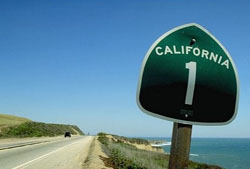 For years, a shifting alliance of activists here in California has been pressing the idea of calling a constitutional convention to try and cut through the partisan tangle in Sacramento. Unfortunately, since only the legislature can call a constitutional convention, the partisan tangle in Sacramento stands in the way of cutting through the partisan tangle in Sacramento.
For years, a shifting alliance of activists here in California has been pressing the idea of calling a constitutional convention to try and cut through the partisan tangle in Sacramento. Unfortunately, since only the legislature can call a constitutional convention, the partisan tangle in Sacramento stands in the way of cutting through the partisan tangle in Sacramento.
But the effort has picked up steam lately, with a couple of ballot initiatives being filed that would (a) allow the people to call for a convention and (b) call a convention. If backers can get a million signatures for these initiatives, they’ll be on the ballot next November. Unfortunately, the public isn’t yet on their side:
Backers of an overhaul of California’s government, who hope to leverage disgust with Sacramento into support for changing how the state raises taxes and spends money, have a difficult path ahead, according to a new poll of California voters.
….Voters don’t want the tax code overhauled in the ways that many fiscal experts promise would tamp down the wild revenue swings that have led to a constant state of budget crisis in California. They don’t want the Constitution changed to allow a simple majority of lawmakers to push a budget onto the governor’s desk, as most other large states allow. And they don’t want the state to touch Proposition 13 property tax restrictions, even if residential property taxes would remain strictly limited.
The problem is that the partisan tangle in Sacramento is basically a reflection of California itself. My fellow residents have no desire to pay higher taxes and no desire to cut services in any significant way, and they’re apparently willing to destroy the state before finally admitting that they can’t have both. But we haven’t quite reached that point yet, and the purpose of a constitutional convention is simply too clear to be covered up: backers want the legislature to have the power to raise taxes. The anti forces will have absolutely no trouble making that clear, and that in turn means that these two initiatives are almost certainly doomed.
But we’ll see. It’s possible — unlikely but possible — that things will deteriorate enough in the next year to make Californians realize that they don’t have many choices left. There’s not much left to be squeezed out of higher education without simply abandoning it completely; K-12 is inviolate; nobody seems willing to get rid of our insane sentencing laws and fantastic prison population; public employee unions have no intention of moderating their pension demands; and taxing marijuana isn’t going to get the job done. All those things have been true for years, though, and the battle lines are pretty much the same today as they were a decade ago.
So what’s left? Beats me. But unless some kind of catastrophe drives home the scope of our problems to 50% + 1 of our citizens next November, it’s hard to see how anything changes. Maybe the initiative backers need to hire Roland Emmerich to produce a few ads for them.

















